Metabolism
Metabolism refers to the chemical processes that occur within a living organism to maintain life. These processes involve the conversion of food into energy and the building or breaking down of molecules for various cellular functions.
Key Concepts
- Metabolic Pathways: These are series of chemical reactions that occur within the cells to convert substances from one form to another.
- Catabolism: This is the breakdown of complex molecules into simpler ones, often releasing energy in the process.
- Anabolism: This involves the synthesis of complex molecules from simpler ones, requiring energy input.
- Metabolic Rate: This refers to the speed at which the body uses energy and carries out metabolic processes.
- Enzymes: These are biological catalysts that facilitate and regulate metabolic reactions.
Study Guide
Here are some key points to focus on while studying metabolism:
- Understand the difference between catabolism and anabolism, and be able to provide examples of each process.
- Learn about the role of enzymes in metabolic pathways and how they affect the rate of reactions.
- Explore the concept of metabolic rate and how it can be influenced by factors such as exercise, diet, and genetics.
- Examine the specific metabolic pathways involved in the breakdown of carbohydrates, fats, and proteins for energy production.
- Discuss the importance of metabolism in maintaining homeostasis and overall health in organisms.
Understanding metabolism is crucial for comprehending various aspects of biology and human physiology. It is also integral to fields such as nutrition and biochemistry, as it underpins the processes involved in energy production and utilization within living organisms.
Remember to review and practice applying these concepts to real-life examples to deepen your understanding of metabolism.
.◂Science Worksheets and Study Guides Fifth Grade. Roots, Stems and Leaves
Study Guide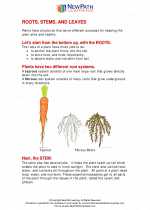 Roots, Stems and Leaves
Roots, Stems and Leaves  Activity Lesson
Activity Lesson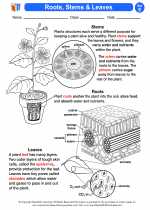 Roots Leaves
Roots Leaves  Worksheet/Answer key
Worksheet/Answer key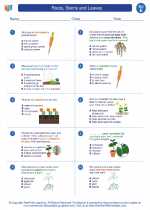 Roots, Stems and Leaves
Roots, Stems and Leaves  Worksheet/Answer key
Worksheet/Answer key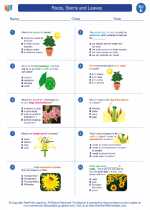 Roots, Stems and Leaves
Roots, Stems and Leaves  Worksheet/Answer key
Worksheet/Answer key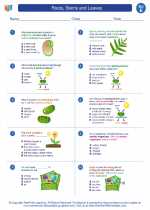 Roots, Stems and Leaves
Roots, Stems and Leaves  Worksheet/Answer key
Worksheet/Answer key Roots, Stems and Leaves
Roots, Stems and Leaves  Vocabulary/Answer key
Vocabulary/Answer key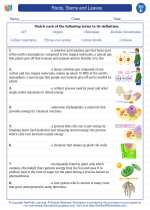 Roots, Stems and Leaves
Roots, Stems and Leaves  Vocabulary/Answer key
Vocabulary/Answer key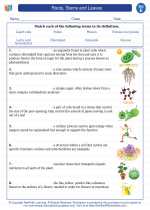 Roots, Stems and Leaves
Roots, Stems and Leaves  Vocabulary/Answer key
Vocabulary/Answer key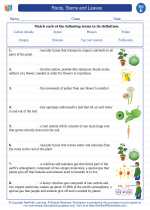 Roots, Stems and Leaves
Roots, Stems and Leaves 

 Activity Lesson
Activity Lesson
 Worksheet/Answer key
Worksheet/Answer key
 Worksheet/Answer key
Worksheet/Answer key
 Worksheet/Answer key
Worksheet/Answer key
 Worksheet/Answer key
Worksheet/Answer key
 Vocabulary/Answer key
Vocabulary/Answer key
 Vocabulary/Answer key
Vocabulary/Answer key
 Vocabulary/Answer key
Vocabulary/Answer key

The resources above cover the following skills:
LIFE SCIENCE (NGSS)
From Molecules to Organisms: Structures and Processes
Students who demonstrate understanding can:
Support an argument that plants get the materials they need for growth chiefly from air and water.